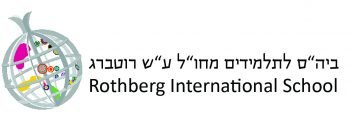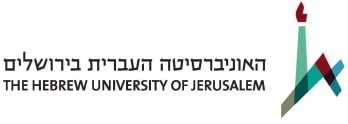From the moment we are born, we slowly learn to communicate. At first, we use facial expressions and our body to “speak.” Very soon, however, we start communicating using language. Or maybe, as in my case, two languages. Wherever we are, we grow up communicating with people. What if we did not have language? Who are we without it? And, important if you study in Israel (at Hebrew University’s Rothberg International School), doesn’t it help to make a real effort to learn Hebrew for our studies and understanding the world we live in?
I grew up in the province of Fryslân (Frisian for the Dutch province Friesland) in the Netherlands – or Holland like many people in Israel call it. As for every child, the world was a wonderland. Step by step, word by word, I was becoming familiar with the place where I was born. I learned to identify things in nature, animals, and other humans… to say loft (air), frysk hynder (Frisian horse), and pake and beppe (grandfather and grandmother).
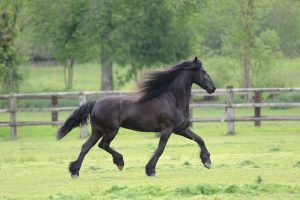
As all of us, I learned to speak, write, and read about this world – in Frisian at home, in Dutch at school. Soon the world was no wonderland anymore. It became a place that I “know.” Or, at least, I thought so. Our thinking is in words, but is the world really what we think? Can language describe reality? Who am I if I did not speak Frisian, Dutch, or a language at all?
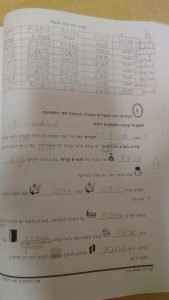
In one of our Hebrew classes we read a text about Alice in Wonderland – in Hebrew: אליס בארץ הפלאות (don’t forget: you read Hebrew from right to left. Here, phonetically, it says: Alis, ba’erets haplaut). It’s a book that opens up a new world: לא סטנדרטי; עולם חדש (olam chadash; lo standarti). This was one of my favorite classes; it enabled me to learn new words in Hebrew, and also reminded me “to wonder” (לִתְהוֹת: lithot) and to “realize” something (משהו: mashehu) important:
Language itself opens a new world to us. It brings us back to wonderland. Even though we might be familiar with things in the world, we don’t have the ability to share it with those who don’t speak our language. So, what do we do? We try to find the words and explain what we want to say. Like our teachers try to help us, not just to use the language, but to understand the meaning of it. It often happens in class when they try to explain, and someone says: “Is it…?” And they say: “Not quite…but close.” Language, as I realised, shows us several things. First of all, it shows that we want to understand the world we are born into. Second, it tells us that we want to connect with one another. We share this world and, just like Alice, we need to ask the right questions if we want to understand it.
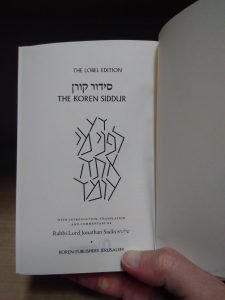
Learning Hebrew is especially relevant to this quest. Why? The Jews have long been known as “People of the Book.” The Hebrew Bible and the Siddur are full of examples illustrating the importance of language. For example, Jewish philosophers/sages have asked many times, what is meant by עבודה שבלב (avodah shebalev) “the service of the heart,” a command given in the Torah. The answer typically given is “prayer” – in one’s heart and with one’s heart. And prayer is done through words.
Another example from the Hebrew language, which at the same time shows its connection with Judaism, includes the term לִזכּוֹר (lizkor: to remember), that has connections to the Hebrew words for light and darkness at the same time. Or what to think of the fact that there are seven days, of which the first six are numbered and named separately beginning with the word יום (yom) day, and then the seventh day is just called שַׁבָּת (Shabbat). Orthodox Jews don’t use יום (yom: day) in combination with Shabbat, showing it is very unlike the other days, if a “day” at all, because it is beyond time. We can see now that learning Hebrew does not only open the world of today’s Israel, it also opens a religious/spiritual conversation in these regions that has been going on for centuries – within Judaism and between different traditions. It is not without reason that in the Qur’an we can find the term “people of the Book” more than 30 times – referring to Judaism, yet also through the centuries to Christians, Sabians, Hundus, Zoroastrians, and even Buddhists. Not surprisingly, the human has often been defined as a being that is able to use language, a definition that has been given by not just Rabbis, but also by the Greek philosopher Aristotle.
The language I grew up with, Frisian (Frysk), goes back to Greek and Roman times. There are many words that are not only difficult to translate into another language, but also have different layers of meaning. For example: Ik bin it paad bjuster. In English it would be something like “I am lost.” But there is much more to it; there is a reference to “path” (paad) that has become “dark” or “vague” (bjuster). In a spiritual/religious sense we can see that it is much more than being lost. No doubt the difficulty of translation and these layers of meaning can be found in every language. Which is exactly why the Canadian philosopher Charles Taylor states that with losing languages, we not only lose a connection with God (or: Allah, Elohim, Nature, etc.), but also with meaning.
At the same time, it is good to remember that language itself might not be describing reality, as we learn from a wonderful part in the סֵפֶר (sefer: book) about Alice:
‘When I use the words,’ Humpty Dumpty said, in a rather scornful tone, ‘it means just what I choose it to mean – neither more nor less.’
‘The question is,’ said Alice, ‘whether you can make words mean so many different things.’
‘The question is,’ said Humpty Dumpty, ‘which is to be master – that’s all.’
So, we must not forget that we need to keep asking questions, especially about what we mean to say and the world we are referring to. But in essence, language ties us all together in how we learn about the world. And people who share the same language are connected through many generations. It makes us able to remember the world of the past so that we can learn from it. Yet, it also ties different groups together – if we make an effort to learn each other’s language instead of all speaking one and the same.
Learning a language is, then, the way to understand ourselves, to understand others, and perhaps, is also the way to a (more) peaceful world with meaning (with different layers). Can this happen? Well, we find the answer in Lewis Carroll’s excellent (מְצוּיָן: metsuyan) book: ‘This is impossible,’ says Alice, at a certain point. To which the Mad Hatter replies, ‘Only if you believe it is.’
